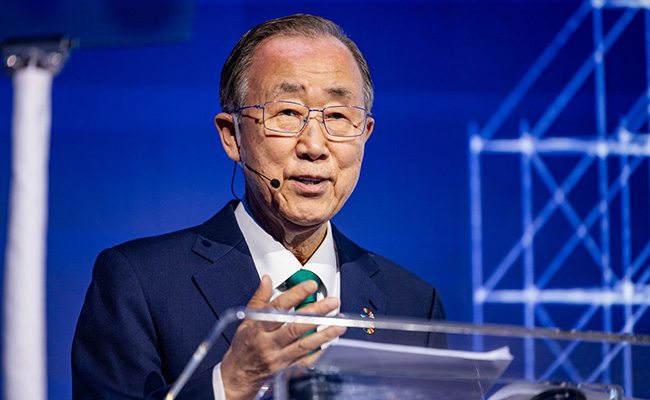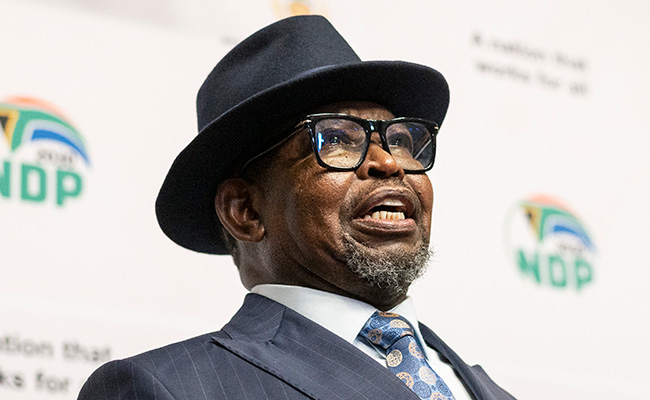South Africa has become the latest in a long list of African countries to sign an agricultural trade deal with China, signalling the opening of new markets for agricultural produce and a pivot away from the US.
On Wednesday, agriculture minister John Steenhuisen and his Chinese counterpart, minister Sun Meijun, signed a stone fruit trade protocol in Shanghai, which the duo described as “historic”.
The agreement opens the Chinese market for the first time to five types of South African stone fruit: apricots, peaches, nectarines, plums and prunes. It’s also the first instance where China has negotiated access for multiple stone fruit types from a single country, under one deal.
And it’s worth a packet.
Steenhuisen says the opening of the Chinese market could “unlock” about R400m for South Africa over the next five years – a figure “which is projected to double over the next 10 years”, he said.
Last year, China imported more than 21-million cartons of peaches and nectarines and 20-million cartons of plums. To put that in perspective, the numbers exceed South Africa’s entire seasonal export volume. Projections indicate that South Africa’s exports to China are set to grow to 5% of total export volumes by 2032/33.
The deal is just one of dozens of agriculture agreements struck between China and African countries in the past few months; a boon to continental exporters, as well as a shot in the larger trade war between the US and China.
Where the US has raised tariffs on a number of African countries, China has cut tariffs.
As Bloomberg reported last week, Beijing in September approved imports of blueberries from Zimbabwe for the first time. It gave the green light in June to Gambian groundnuts and cashews, while Ethiopian soybean meal has also just got its first go-ahead to enter the Chinese market too.
“The Chinese government’s basic strategy is very clear,” Christopher Beddor, deputy China research director at Gavekal Dragonomics told Bloomberg.
The country wants to put more distance between its economy and Trump, and “that means it is willing to strike agricultural deals just about everywhere in the developing world, including in Africa”.
But it’s not an instant bonanza. Wandile Sihlobo, chief economist of the Agricultural Business Chamber of South Africa says the core problem for Africa’s agriculture isn’t actually markets, but productivity. “This won’t be fixed by these markets, but by the African governments easing regulations for GMO and other better seeds and improving land governance,” he warns.
“The idea that markets are opening and we must be happy is misguided. The focus should be on boosting Africa’s agricultural production.”
Infrastructure investment
Still, the South African fruit industry is clearly chuffed. It’s been pushing for access to Asia generally and China in particular, and only recently received the go-ahead for citrus, avocadoes and pears.
“If that [the end of tariffs between South Africa and China] happens, then it will be a great win for the fruit industry. The lower the tariffs, the better,” Fhumulani Ratshitanga, CEO of umbrella industry group FruitSA, tells Currency.
During his discussions with Meijun, Steenhuisen also addressed the resumption of beef trade from certain South African regions and progress regarding foot-and-mouth disease regulation.
And South Africa has invited a Chinese technical team to local cherry and blueberry orchards and packhouses during the current harvest period.
If the inspection goes ahead smoothly, South Africa will likely secure cherry market access to China within the next harvest cycle, strengthen its trade ties, and unlock new export and job opportunities.
There’s another positive spin-off: South Africa’s neglected state-run logistics sector. The tangible results of Chinese investment can already be seen in the upgrading of railways, ports and highways, improving market access for farmers.
“This work aligns with China’s Belt and Road Initiative, which prioritises infrastructure investment across Africa,” said Steenhuisen.
China has been South Africa’s largest trading partner for more than a decade – a partnership that looks set to deepen further.
Sign up to Currency’s weekly newsletters to receive your own bulletin of weekday news and weekend treats. Register here.













